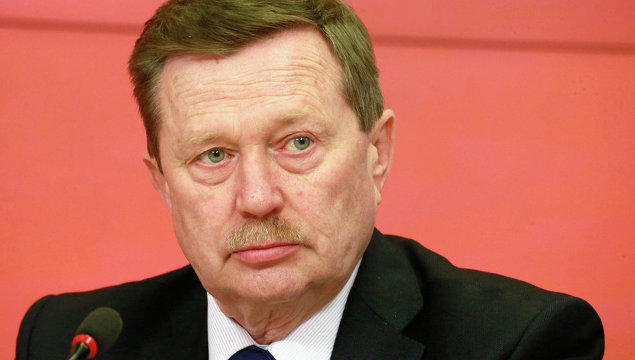
Our listeners know about the Russkiy Mir Foundation as a public organization which supports the promotion of the Russian language, Russian culture, information about Russia and Russian life in the past and today. The concept of Russkiy Mir (the Russian world) is of course more profound and philosophical, believes our guest, Vladimir Kochin, Executive Director of the Russkiy Mir Foundation. And despite the fact that our relations with the external world, with Western countries in particular, has been rather complicated, the partners of the Russkiy Mir Foundation include both Russia-speaking people who have ended up living outside Russia due to various circumstances and others who are simply interested in Russian culture. So in this situation what is the Russian language: a weapon or an instrument of soft power?
Vladimir Kochin: Both a weapon and an instrument. Those who know the language can receive more credible information about what is going on in Russia and around it. So the promotion of the language is also the promotion of the truth about what contemporary Russia is. We earlier spoke of soft power, but right now this issue is directly connected to the policy of language promotion.
We are a noncommercial organization and we operate as a foundation. We are unique in that we are not governed by anyone, in contrast to all other agencies which are engaged in, let’s say, state propaganda abroad (and there is nothing improper with this). We only have partners, including abroad, for example, in Germany. These partners are of various sorts and not only from the diaspora. They include leading universities, national and regional libraries. And when we provide support for the promotion and study of the Russian language, for learning about contemporary and classical literature, we act in the interests of our partners: we cannot dictate anything…
Of course, the times are difficult right now – there are political excesses and a lack of understanding on the part of local authorities… Nonetheless, the environment in which we are operating has not gotten cardinally worse. Meanwhile, the propaganda which is being promoted in Europe, particularly the state propaganda from the EU stats, to the contrary, is provoking heightened interest in primary information sources.
In Europe we have more than 40 partner centers – universities, libraries and a number of noncommercial organizations. We provide each one with the opportunity to connect to the Russian online system of databases and information resources: there are approximately 40,000 publications – weeklies, dailies – from the state mouthpieces to the opposition publications to the tabloids. We provide this resource free of charge, and right now it is in high demand. More so than earlier: people can select for themselves from this enormous flow of information what they believe corresponds to their interests…
The same thing goes for the treasures of the museums of the Russian Federation which have provided electronic versions of their expositions. This resource is in high demand.
Natalya Bekhtina,
Host of “In the First Person”
Listen to full interview in Russian
here.
Source: Radio Rossii








